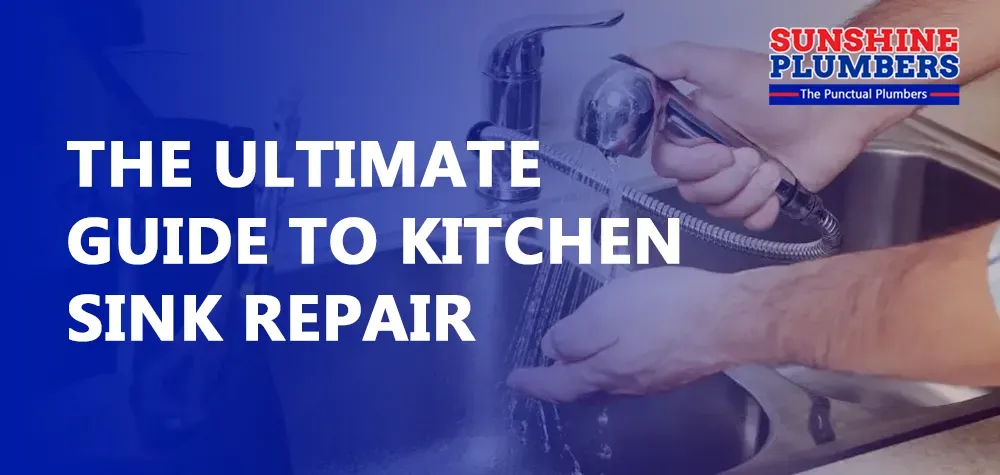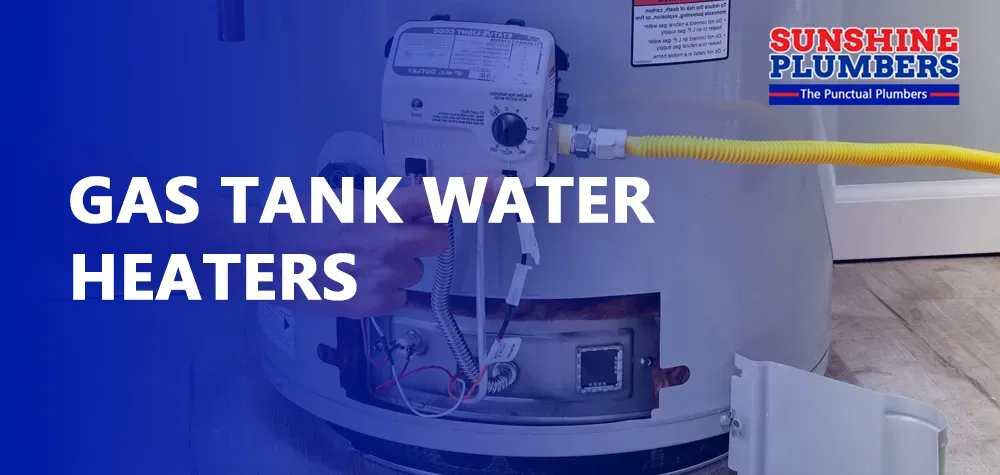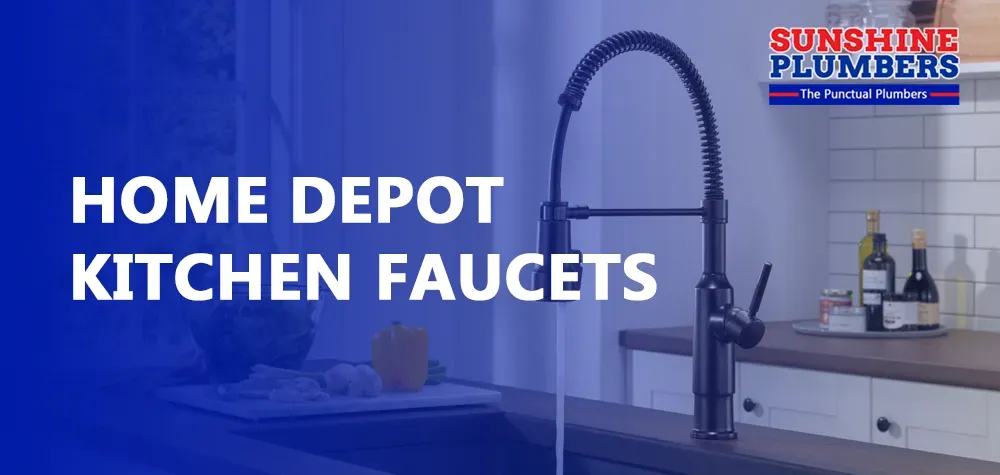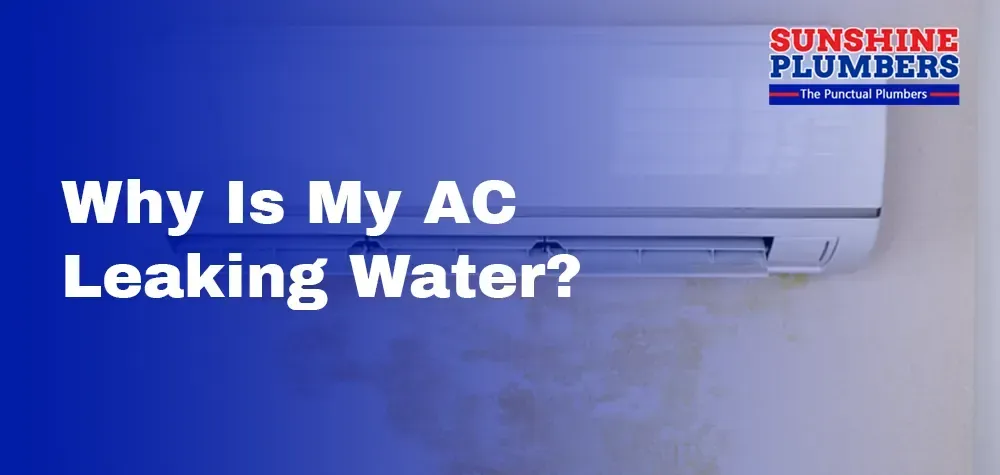Demystifying: Why Is My AC Leaking Water? Expert Insights
Discovering water leakage from your air conditioning unit can be concerning and frustrating for any homeowner. Understanding the underlying causes of AC leaks is crucial for addressing the issue promptly and preventing potential water damage to your home. In this comprehensive guide, the plumbing experts at Sunshine Plumbers delve into the common reasons why your AC may be leaking water, providing valuable insights and solutions to keep your cooling system running smoothly.
Tips and Tricks for Tackling This Issue
Condensate Drain Line Blockage:
One of the most prevalent and frustrating causes of AC water leakage is a blockage in the condensate drain line. This drain line plays a crucial role in the cooling process of your air conditioner. As your AC unit cools the air, it also removes moisture from the indoor environment, collecting it in a condensate pan. From there, the moisture is intended to be drained away through the condensate drain line. However, over time, this drain line can become clogged with various types of debris, such as dirt, dust, mold, and algae growth. When this occurs, the condensate pan can overflow, causing water to leak onto the floor or into other areas of your home.
Solution:
To address a blockage in the condensate drain line, it's essential to take proactive measures. Here's what you can do:
- Inspect the Condensate Drain Line: Begin by locating the condensate drain line, typically located near the indoor unit of your air conditioner. Inspect the line for any visible signs of blockage or obstruction, such as standing water or debris buildup.
- Clear the Blockage: If you notice any blockage in the condensate drain line, it's crucial to remove it promptly. You can use a wet/dry vacuum or a pipe brush to carefully clear away any debris or buildup from the drain line. Be sure to work gently to avoid damaging the line.
- Prevent Future Blockages: To prevent future blockages from occurring, consider implementing preventive measures. For example, you can add algae tablets or pour a vinegar solution into the condensate pan. These solutions can help inhibit the growth of algae and mold, reducing the risk of future blockages and leaks.
Frozen Evaporator Coil:
Another common culprit behind AC water leakage is a frozen evaporator coil. The evaporator coil is responsible for absorbing heat from the air, which results in the cooling effect produced by your air conditioner. However, when the evaporator coil becomes excessively cold due to restricted airflow or low refrigerant levels, condensation can freeze on the coil's surface. Eventually, as the coil thaws, the melted water can overflow from the unit, leading to water leakage.
Solution:
To address a frozen evaporator coil and prevent water leakage, consider the following solutions:
- Check the Air Filter: A dirty or clogged air filter can restrict airflow to the evaporator coil, leading to freezing issues. Check the air filter regularly and replace it if it's dirty or clogged to ensure proper airflow.
- Schedule Professional Maintenance: If you suspect low refrigerant levels or other issues with your AC system, it's essential to schedule a professional HVAC technician to inspect and service the unit. A qualified technician can diagnose and address any underlying issues contributing to the frozen evaporator coil.
- Install a Smart Thermostat: Consider installing a smart thermostat to monitor and optimize your AC's performance. Smart thermostats can help regulate temperature levels and airflow, reducing the risk of freezing issues and water leakage.
Improper Installation or Sealing:
Poor installation or inadequate sealing of the AC unit can also contribute to water leakage. Improperly installed or sealed ductwork, drain pans, or air handler units can allow moisture to escape and accumulate, leading to leaks and water damage.
Solution:
To address improper installation or sealing issues, consider the following solutions:
- Hire a Licensed HVAC Contractor: Ensure that your AC unit is installed by a licensed and experienced HVAC contractor. A qualified professional can properly install and seal the unit, minimizing the risk of leaks and water damage.
- Regularly Inspect and Seal Ductwork: Regularly inspect the ductwork connected to your AC unit and seal any gaps or leaks with duct tape or mastic sealant. Properly sealed ductwork can help prevent moisture from escaping and causing leaks.
- Ensure Proper Drain Pan Installation: Ensure that the drain pan is securely attached and sloped correctly to allow proper drainage. A properly installed drain pan can effectively collect and channel condensate away from the unit, reducing the risk of water leakage.
Addressing AC water leakage requires a thorough understanding of the underlying causes and proactive measures to prevent future issues. By following the expert insights and solutions provided in this guide, you can effectively diagnose and address AC leaks, ensuring optimal performance and longevity of your cooling system. If you encounter persistent or severe leaks, don't hesitate to contact the
experienced plumbers at Sunshine Plumbers for professional assistance. We're here to help you keep your home comfortable and your plumbing in top condition.




